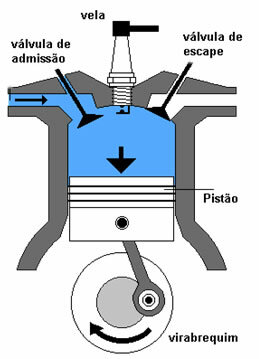In the search for less polluting and renewable fuel alternatives, vegetable oil has become a great option. This substance is a kind of fat obtained from plants, especially their seeds. The main raw materials used for production are soy, castor beans, palm oil, sunflower, corn, coconut, linseed, babassu, peanuts, etc.
After physical-chemical processing, vegetable oil can be used as a lubricant, cooking oil, biofuel production, cosmetics, pharmaceuticals, among others. Vegetable oils are insoluble in water, however, they are soluble in organic solvents, a fact that provides their use in industries.
Vegetable oil is very common in kitchens, but it can also be used as fuel, being used pure or mixed with petroleum diesel. However, the vehicle's engine must be adapted to receive this substance. The positive aspect is that the greater the amount of vegetable oil in the fuel, the lower the emission of polluting gases into the atmosphere.
Brazil is developing technology to replace petroleum diesel with palm oil. Experts claim that, after due chemical transformations, oil palm can provide diesel excellent quality, in addition to requiring a small area for its cultivation, making the process more cheap.
Despite the various advantages added to the use of vegetable oil as fuel (it emits less pollutants, is a renewable source, reduces dependence on oil, etc.), there are several opponents to such event. The main allegations are that foodstuffs should be destined to feed the population needy, in addition to the fact that this process would trigger some environmental problems: soil depletion, erosion, etc.
By Wagner de Cerqueira and Francisco
Graduated in Geography
Brazil School Team
Biofuels - Fuels
geography - Brazil School
Source: Brazil School - https://brasilescola.uol.com.br/geografia/oleo-vegetal.htm


